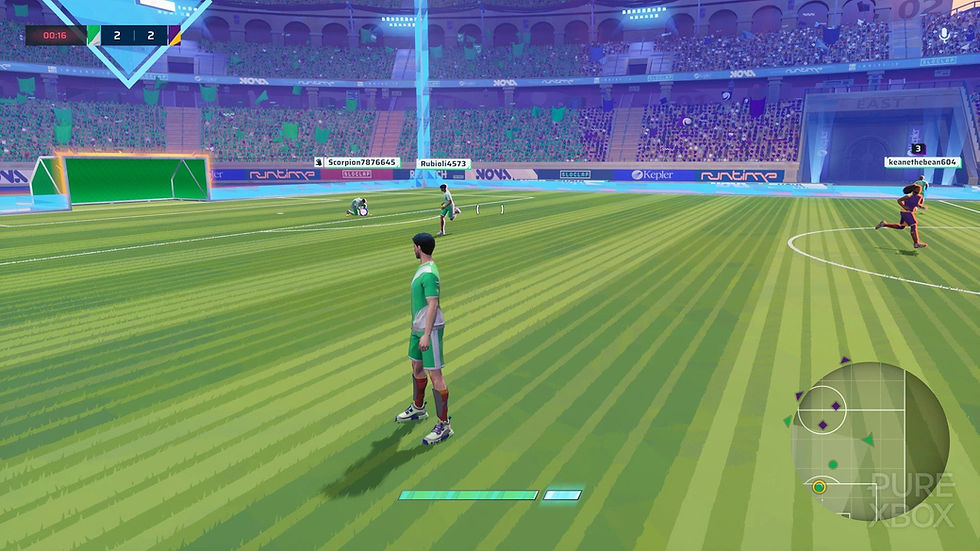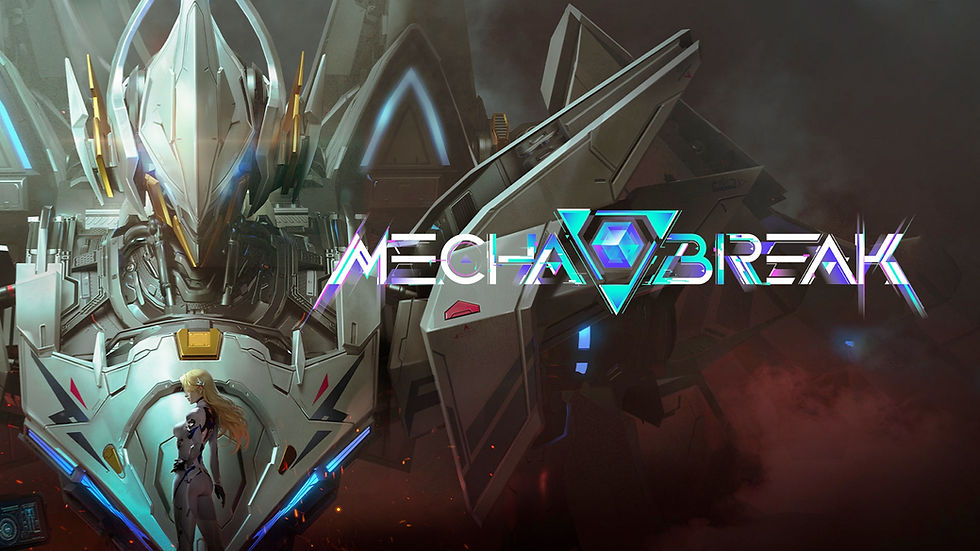Rematch Has Potential but Isn't Ready Yet
- Luunyn

- Aug 6, 2025
- 3 min read
Rematch is the third game from Sloclap, a French game developer known for Absolver and Sifu, two titles focused on hand-to-hand combat. Their new title takes a completely different direction from their usual output: a soccer game. Rematch tries to innovate by offering a 3D perspective and a movement system unlike anything seen in traditional soccer games. It feels like an attempt to create a “real-soccer Rocket League.”
The core concept is a highly arcade-style soccer game focused on controlling a single player, which naturally leads to new strategies and interactions with the ball. This character-focused approach defines the game’s direction, emphasizing teamwork, since you can’t see the entire field or control other players. Movement becomes complex, allowing for directional inputs and specific dribble moves — each tied to a unique button. Mastering your character and understanding team dynamics are crucial for winning.
When it comes to the arcade nature and strategic differences, the most distinctive element is the small field surrounded by an energy wall. This adds a unique layer to gameplay, moving away from the typical pitch format seen in FIFA and similar games. The wall enables new plays, like bouncing the ball off it for a teammate inside the box or escaping tight zones by using the side walls. However, the energy wall can also complicate ball control, especially near the sidelines or goal lines, often leading to chaotic scrambles with multiple players in the same spot.
The 3D camera — which only focuses on your player — makes it much harder to track opponents, resembling the real-life limitation of peripheral vision in soccer. A minimap helps mitigate this by showing relative positions of teammates and the ball, helping with spatial awareness. Paired with the camera, the movement and dribble controls present a steep learning curve. Breaking through this initial barrier to reach a level where you can make an impact is difficult. While this mechanical depth is expected in a competitive game, it’s made worse by control issues — the most basic being the inability to remap buttons, a feature that was only added recently.

Sloclap’s concept is theoretically interesting, but to be effective, it needed to account for other important factors — especially those tied to the dynamics of multiplayer gameplay. Relying on players to work together out of goodwill is naïve. Players often act selfishly, especially in a game where only the person with the ball makes decisions. Digital team sports must punish selfishness and reward cooperation. Rematch tries to do this, but too weakly to be effective. The game doesn’t properly penalize disruptive players who ignore team dynamics — like the infamous goalkeepers who leave their goal to dribble past strikers, lose the ball, and concede easy goals.
These kinds of behaviors are common. Many players refuse to pass and try to win matches alone. While the game technically punishes this by only awarding points for passes, interceptions, assists, and goals — not for just holding the ball or dribbling — most players don’t care about low scores. Since the only consequence is not being MVP, it’s not enough to discourage toxic behavior. This ruins the experience for teammates and has led to widespread frustration among players, who demand stronger punishment systems. At the very least, there should be a vote-to-kick or ban feature to deal with repeat offenders.
There are also significant issues with matchmaking and ranked play. The matchmaking system is completely broken, frequently placing players with vastly different skill levels in the same match, making balanced 10-player games nearly impossible. This gets worse in ranked matches, making rank progression a painful grind. On top of that, the ranking system itself is baffling. Points gained and lost are often nearly identical, sometimes even the same, making it extremely difficult to climb the ranks — even at low tiers like Gold and Platinum. In Rematch, the usual 54–55% win rate isn’t enough to rank up. Even with a large number of matches, players find themselves stuck. Combined with poor matchmaking, this system demotivates players from even trying to play ranked seriously.
In conclusion, Rematch has an interesting concept but suffers from a weak execution. Anyone who plays for a few hours can see that the game was clearly not ready for launch. Basic features were missing, like cross-play between Game Pass and Steam — a glaring omission that highlights just how unprepared the release was. Rematch could have been a good game, but its rough and incomplete launch led to a terrible experience for many. Winning those players back will be Sloclap’s hardest challenge — even harder than reviving Sifu.



Comments